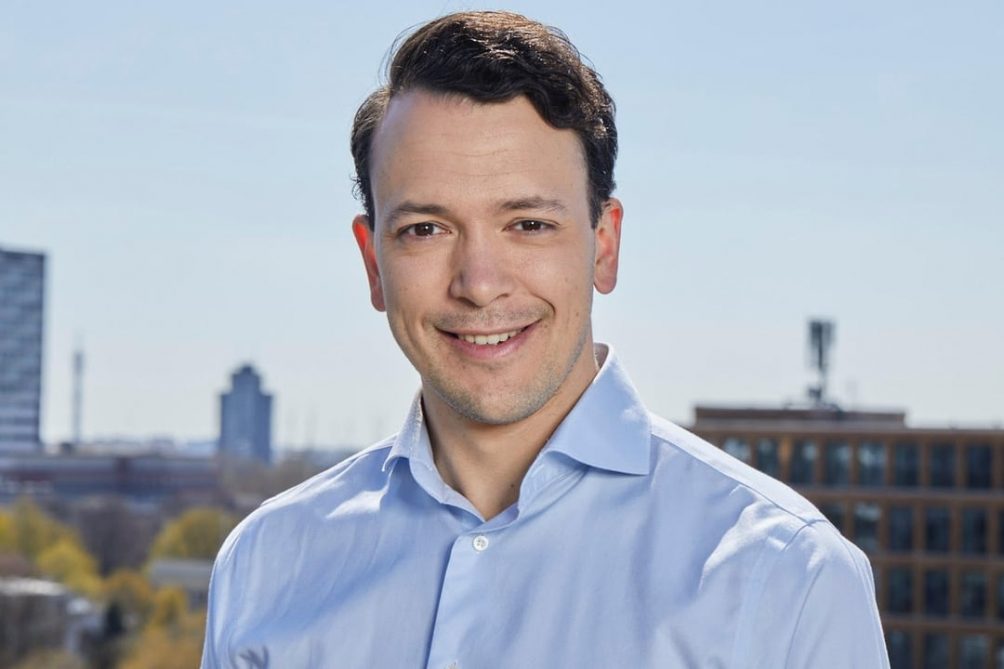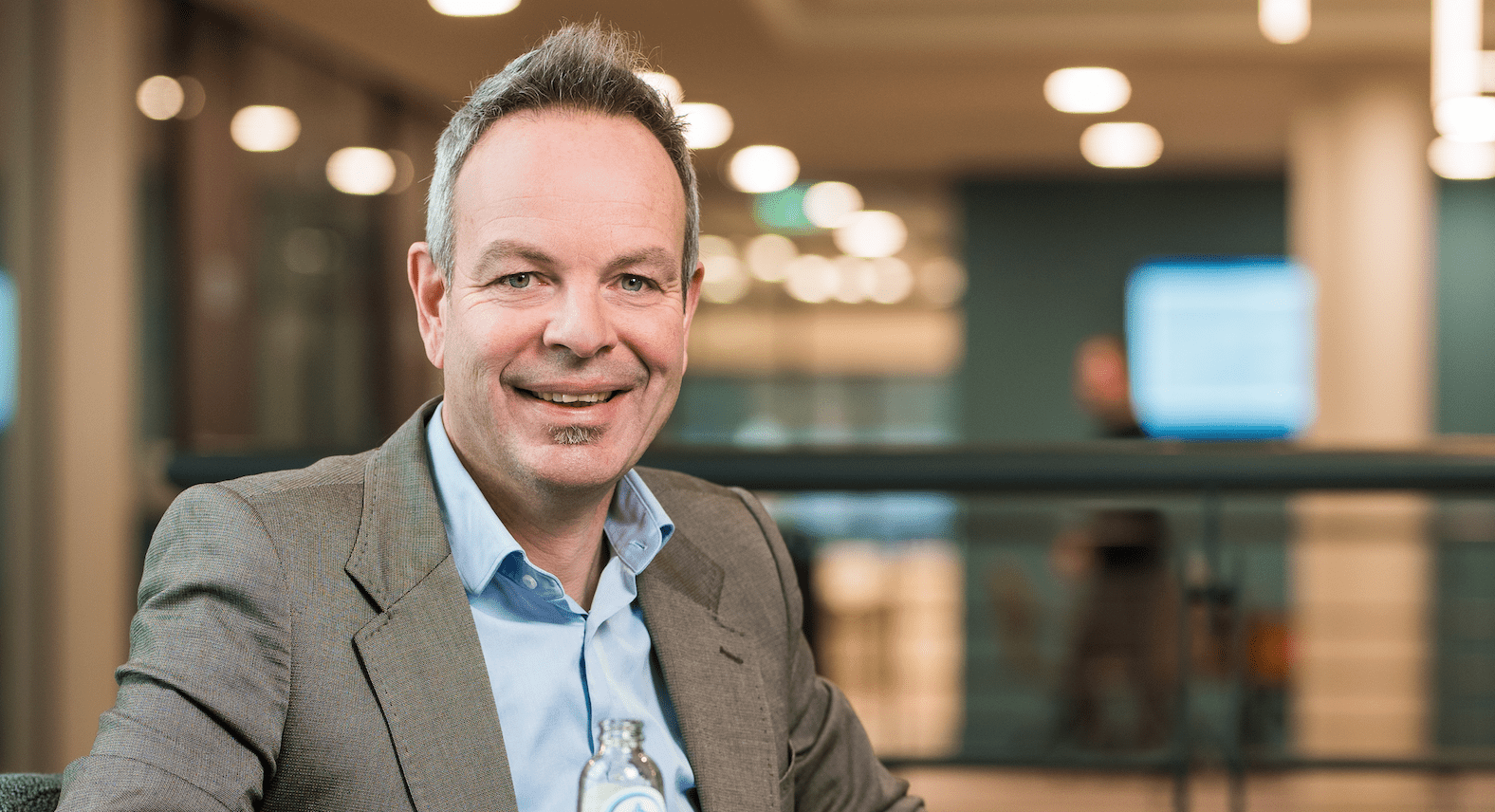
In light of its frenetic growth, the Rotterdam-based digital freight forwarder Shypple can no longer be regarded as a start-up. And this even though the company was only officially founded in 2016 and has been operational since 2017. The company has already raised plenty of millions and regularly wins awards. More employees are joining every month. Yet Shypple is not focused solely on making money. The company also wants to operate in a sustainable way.
Jarell Habets is the young entrepreneur behind the company that literally wants nothing less than to conquer the world. The ambition is to be active on all five continents by 2025.
What makes Shypple so special and sets it apart from the rest? Habets: “It costs billions to facilitate global trade in shipping. Thirty percent of trade costs are spent on bureaucracy, phone calls, Excel sheets, emails, you name it. I figured that this could be done better; easier.” He is referring to the digital platform that he has developed for booking, tracking freight and providing opportunities for communication.
Opportunity to modernize freight forwarding
Jarell himself does not come from the transport and logistics industry. Nor does he have a technical background. “No, I was working in private equity at the time and was looking for a good idea to make a breakthrough with. It was through contact with a very nice port entrepreneur that I got into the world of freight forwarding. That is a huge market, so I am interested in modernizing the sector, disrupting it.
The CEO of Shypple cites the comparison with Booking.com. That is considered to be the prime example in the travel world of a major digital transformation through the provision of online customers with an instant choice of where they can stay almost anywhere. “Only we go much further in digital terms. On the other hand, ease of use is also paramount. The way we work with imports and exports is faster, more efficient and transparent. It’s also cheaper, although we weren’t focusing on that at first. We prefer to emphasize the premium quality of the service. With real-time insight into where freight is at any given time.”
Competing as a digital freight forwarder
Shypple’s story is not a seamlessly successful one. It is also struggling to get a foot in the door. “We are active in a sizeable market, with ninety percent of transport that goes by sea. Consequently, it is extraordinary that only seven large shipping companies are still active. Being able to buy space there as a small player is tricky. Especially in the beginning. And it’s still not easy, what with the current major delays, the high demand for space and the soaring container prices.”
However, digitalization, the online processing of transactions, has been accelerated by the corona pandemic. Customers have started to think differently as a result, Habets says.
According to the young CEO, in the case of Shypple, it is mainly the clever application of technology that accounts for its success. “Setting up the platform comes down to using existing technology in a smart way, for instance, artificial intelligence and OCR (optical character recognition where text from an image is converted into editable text, ed.). There’s never any need to retype anything.”
Difference between platforms and emails
“The biggest difference with emailing, for example, is that the former is fast and online, but unstructured. Via our platform with loads of data, everyone is immediately up to date on everything surrounding the transport of goods. And it is really nice to work with.”
Shypple’s platform creates a centralized communication environment where everyone can see what’s being reported about shipments. The data concerns containers with a number, purchase orders and tracking. No email traffic is needed, since it is clear at a glance where a container is located. A few clicks is all it takes to make a booking.

Risks can be minimized by integrating weather forecasts, for one thing. The booking platform helps stakeholders to quickly anticipate events that could affect deliveries. Moreover, the platform can be used to chat with suppliers on the other side of the world, among other things.
Focus on fresh products as well
There is also good match with innovative players, such as Coolblue. Since last year, the focus has also been on fresh products with the acquisition of Milestone, a freight forwarder in that field. This makes Shypple the first digital freight forwarder of fresh products.
“Up until now, we were mainly doing dry goods. But with fresh products, like avocados for example, our proposition is even stronger. It is a strategic decision and an activity that is a good fit for us. Especially when it comes to refrigerated transportation with special containers, it is even more important for customers to know that everything is going well. They know that because they can follow the transport closely via our platform.”
Another player that was also named along with Milestone was one that first wanted to develop its own booking platform. But that didn’t work out. The key to Shypple’s success lies in the fact that it appears to have succeeded in building a sound platform for shipping. A complex job because it has to satisfy so many different parties, such as dispatchers, agents in the country of origin and the country of destination as well as the customer.
Sustainable through planting trees
Growth to date has been over one hundred percent year on year; in fact, last year it grew by a factor of seven to eight on account of the abovementioned takeover. A total of €25.5 million was raised during the latest round of funding. The company now boasts 3,000 users. Between five and eight new employees are hired each month, bringing the total to 165. The digital freight forwarding platform won the Tech5 country award last year for the way it is innovating the freight forwarding sector.
So far, 95 percent of sales are being made in the Benelux region, and in addition to Europe, Shypple is also in Asia and Central America. But its ambition extend further. “The aim is to be active on all continents within a couple of years,” Habets goes on to say. “That’s why we always put our profits, in theory a couple of million, into expanding, which means we are even operating at a slight loss.”
Shypple also wants to achieve sustainable results. Habets: “We work in a sector with high levels of emissions due to our dependence on fossil fuels. As a small player, you can’t do much about that. But selling in a more sustainable way starts with yourself.”
Shypple hopes to do its part by promoting the use of biofuels and promoting compensation programs. Offsetting CO2 is possible via the platform by planting trees in Tanzania.
Also interesting: Using IT to stabilize supply chains








